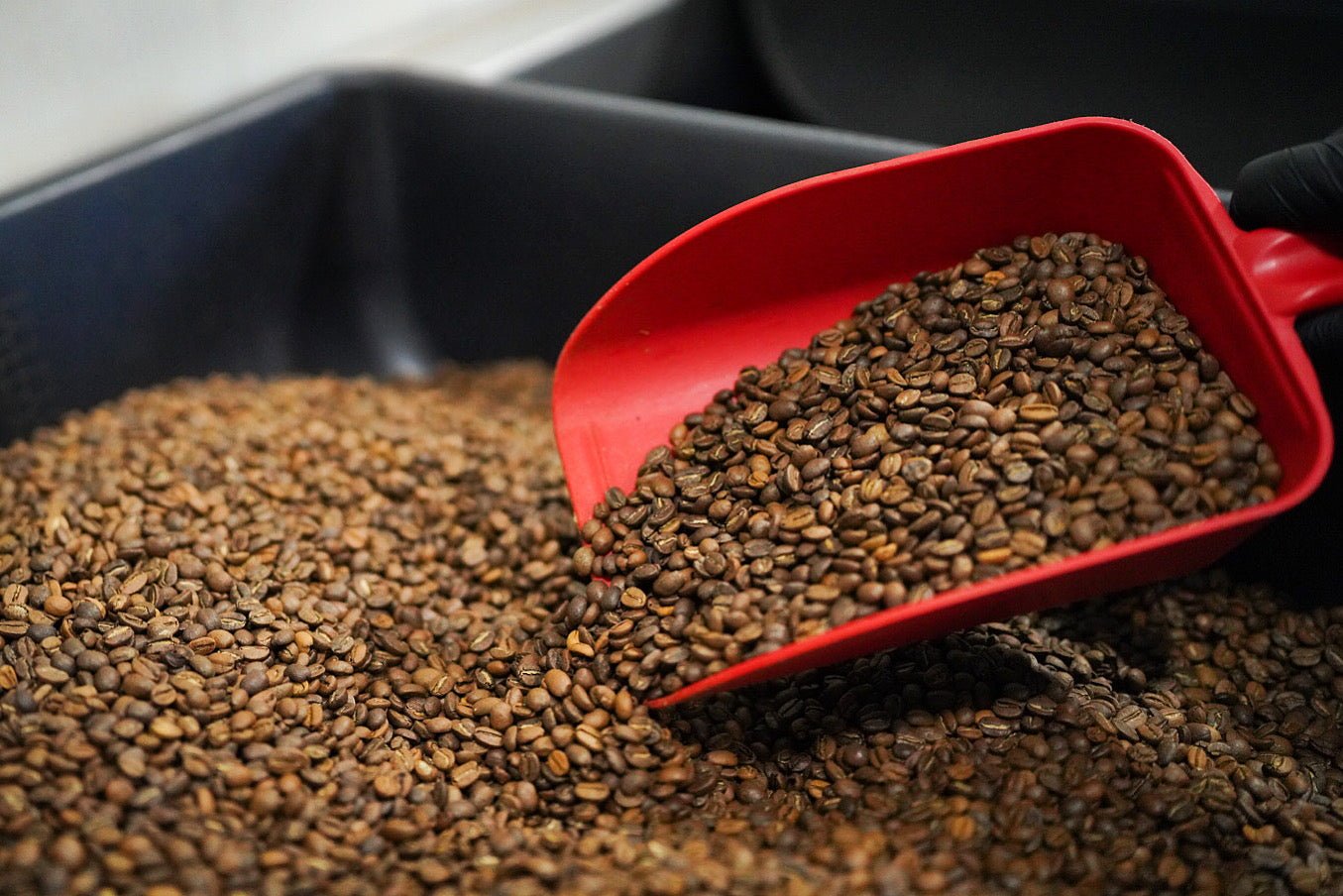Matcha, a finely ground powder made from specially grown and processed green tea leaves, offers a taste experience that is as complex and layered as it is unique. It is a taste that defies simple categorization, that evokes a sense of both tranquility and invigoration, inviting those who taste it to embark on a sensory journey like no other.
Many coffee shops and coffee companies offer a matcha tea at their locations, and it is becoming a very popular tea product.
At first glance, matcha might seem unassuming—its vibrant, electric green color the only hint at the rich tapestry of flavors it contains. But from the moment it meets the tongue, matcha unfurls a symphony of tastes that is sure to mesmerize even the most discerning of palates.
Upon the first sip, matcha introduces itself with an assertive, bold bitterness. This initial taste is like a handshake from a stranger, strong and a bit challenging but undeniably intriguing. This characteristic bitterness, a signature of quality matcha, is a reflection of its high levels of catechins, a type of polyphenol that confers health benefits. It's a deep, robust bitterness that doesn't linger in the mouth but instead makes way for the other, more subtle flavors to emerge.
As the initial bitterness fades, the taste evolves into a unique blend of vegetal, earthy flavors. Some describe it as a taste reminiscent of fresh spinach or the slight tang of raw artichoke, while others compare it to the sweet yet savory flavor of nori, the edible seaweed often used in sushi. This leafy freshness harks back to matcha's roots in the lush tea fields of Japan, where the best tea plants are shaded to increase chlorophyll and amino acid content, giving matcha its characteristic color and taste.
But matcha doesn't stop there. Underlying these dominant flavors, there's a sweetness that lingers, a subtle undertone that balances out the initial bitterness and the subsequent vegetal taste. This sweetness is hard to pin down—it's not the saccharine sweetness of sugar, but rather a delicate, nuanced sweetness more akin to the mild, natural sweetness found in baby peas or sweet corn. It's a sweetness that gives depth and balance to the taste of matcha, rounding off its flavor profile and adding an extra layer of complexity.
Just when you think you've tasted all there is to taste, matcha surprises you with a final flavor note: umami. A fifth taste, distinct from sweetness, sourness, bitterness, and saltiness, umami is often described as a savory, brothy, or meaty taste. In matcha, this umami flavor is a rich, savory note that blankets the tongue and lingers long after the other flavors have faded. It gives a satisfying depth to the tea, making each sip feel full and substantial, and leaves a prolonged, pleasing aftertaste that draws you in for more.
Texture plays a crucial role in the taste experience of matcha as well. When whisked properly, matcha produces a frothy, creamy layer that not only adds a visual appeal but also introduces a tactile element to the tasting experience. The powder dissolves completely, giving the tea a smooth, velvety texture that is simultaneously light and dense, much like a well-made latte. This creaminess enhances the overall flavor of the tea, making each sip a truly luxurious experience.
The taste of matcha is not just about the flavors you can discern on your tongue. It's also about the experience it creates—the calm it instills as you whisk the bright green powder into a frothy brew, the anticipation as you bring the bowl to your lips, the warmth of the tea as it slides down your throat, and the lingering, complex aftertaste. The taste of matcha is a sensory journey, an exploration of flavors that
unfolds gradually, rewarding the patient and attentive taster with an array of experiences that go beyond the usual confines of taste.
The taste of matcha is also deeply intertwined with its cultural and ceremonial significance. As the centerpiece of the Japanese tea ceremony, matcha is meant to be savored slowly, with mindfulness and respect. Each sip is a reflection of centuries-old traditions, a connection to the Zen philosophy of simplicity, harmony, and tranquility. This context adds a layer of meaning to the taste of matcha, transforming each cup into a meditative experience, a moment of serene introspection.
Moreover, the taste of matcha is as much about the environment in which it is consumed as it is about the tea itself. Enjoyed in a peaceful setting, with enough quiet to allow the drinker to focus on each sip, the taste of matcha becomes an exercise in mindfulness, an opportunity to connect with the present moment and to find calm in the simple act of drinking tea.
In conclusion, the taste of matcha is a complex, layered experience that goes beyond the mere interplay of bitterness, sweetness, and umami. It's a taste that tells a story, that reflects its rich cultural background and the meticulous care that goes into its production. It's a taste that challenges, surprises, and ultimately satisfies, inviting those who experience it to slow down, pay attention, and savor the moment. Whether you are a seasoned tea connoisseur or a curious beginner, the taste of matcha has something to offer, a unique flavor journey that is sure to captivate and delight.


